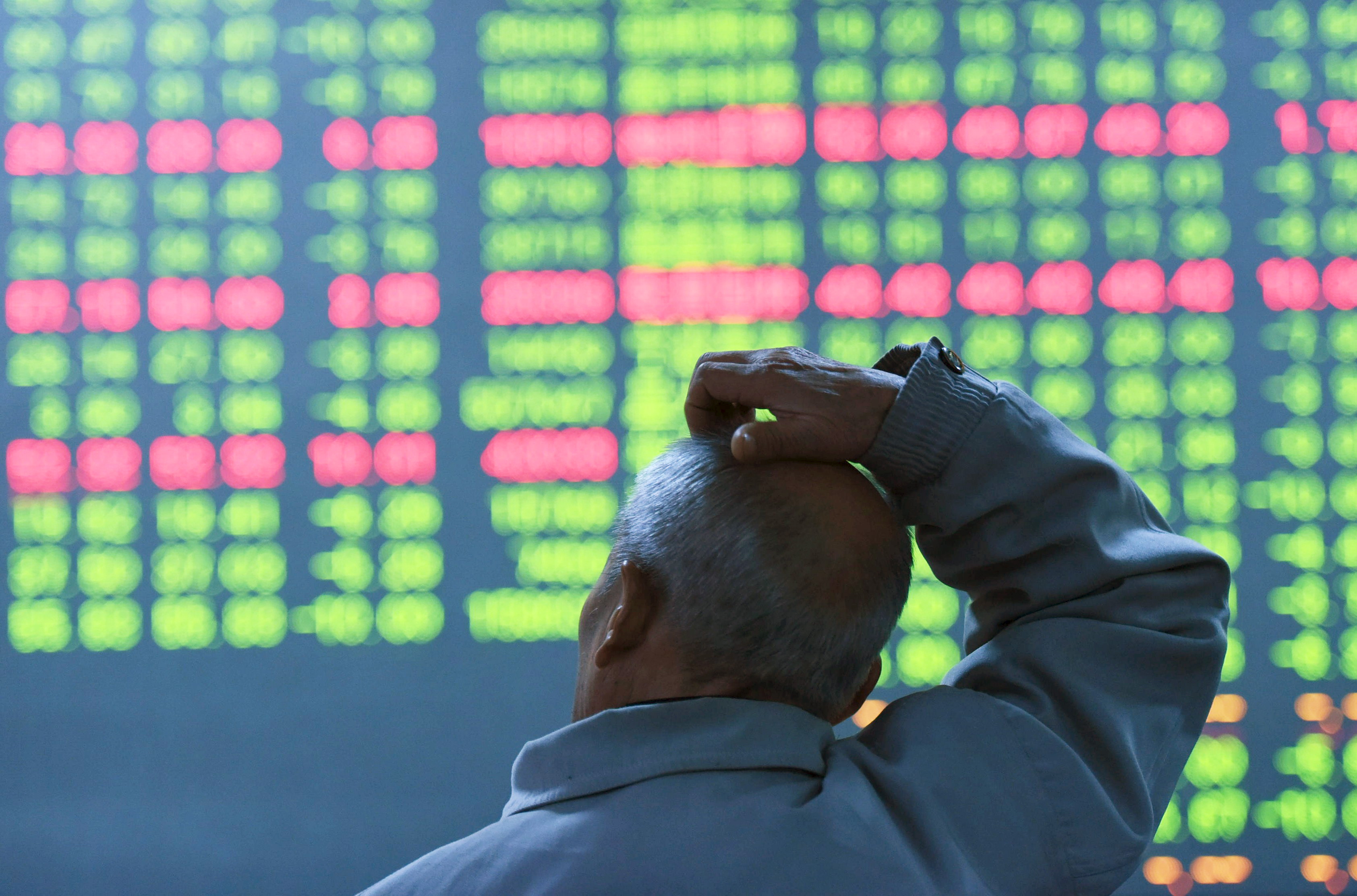Will China's woes infect the world?
It's getting harder to ignore the stock market chaos in China

A free daily email with the biggest news stories of the day – and the best features from TheWeek.com
You are now subscribed
Your newsletter sign-up was successful
The smartest insight and analysis, from all perspectives, rounded up from around the web:
It's getting harder to ignore the stock market chaos in China, said Anjani Trivedi at The Wall Street Journal. Until a few months ago, "few in global markets took their cue" from the notoriously volatile Shanghai index, which is "undersized and isolated" compared with New York's and those of other global financial hubs. But Shanghai is now down 15 percent in the new year, and its meltdown has "rolled through stocks, commodities, and currencies across the globe," pushing U.S. stocks to their worst opening week in history. What's changed? It's partly that the global economy relies more than ever on China to fuel growth, said Greg Ip and Bob Davis, also at The Wall Street Journal. China is the No. 1 trading partner for countries from Australia to Brazil to South Korea. And though there have been signs for a while that "the world's second-biggest economy is in trouble," global markets have been convinced that leaders in Beijing could right the ship. Now many believe China's authorities "are powerless to fix" what ails the country's economy, and inconsistent policy moves in recent weeks have only added to the market panic.
The question is, how sick is China, really? said Matt O'Brien at The Washington Post. Most of China's economic data is dodgy, so the answer is a bit of a mystery. What we do know is that the country's old growth model, built on vast reserves of rural labor, has essentially run its course; "there are only so many people you can move from the farms to the factories." Beijing's challenge now is to manage the necessary shift to a consumer economy. That involves the tricky task of intervening "even more in the economy to keep it growing today" while also "loosening its grip to keep it growing tomorrow." Right now, "the American economy is acting as a steadying force" in an otherwise messy economic world, said Neil Irwin at The New York Times. But as China's woes drag down its global trading partners, it will mean less demand for American products, and thus fewer jobs for American workers. And if the U.S. economy does start to slump, there are precious few remaining policy remedies at our disposal. The Federal Reserve has already begun to lift interest rates, and a Republican-dominated Congress would declare any economic stimulus package "dead on arrival."
The Week
Escape your echo chamber. Get the facts behind the news, plus analysis from multiple perspectives.

Sign up for The Week's Free Newsletters
From our morning news briefing to a weekly Good News Newsletter, get the best of The Week delivered directly to your inbox.
From our morning news briefing to a weekly Good News Newsletter, get the best of The Week delivered directly to your inbox.
Conventional wisdom tells us that "while China itself is in big trouble, the consequences for the rest of us should be manageable," said Paul Krugman at The New York Times. I'm not so sure. Sometimes, psychology is just as important as goods traded and profits earned. Europe and the U.S., for instance, export only a small fraction of our goods to each other, but our recessions and recoveries often occur at the same time. It's what we might call "psychological contagion: Good or bad news in one major economy affects animal spirits in others." That's exactly what I'm afraid of, said Robert Samuelson at The Washington Post. The U.S. economy might appear strong now, but a sustained slump in global stock prices could "demoralize" investors and create a negative "wealth effect." That is, "when people feel poorer, they spend less," which would magnify the impact of a market decline. "Whatever happens, this is not your father's business cycle."
A free daily email with the biggest news stories of the day – and the best features from TheWeek.com
-
 Palantir's growing influence in the British state
Palantir's growing influence in the British stateThe Explainer Despite winning a £240m MoD contract, the tech company’s links to Peter Mandelson and the UK’s over-reliance on US tech have caused widespread concern
-
 Quiz of The Week: 7 – 13 February
Quiz of The Week: 7 – 13 FebruaryQuiz Have you been paying attention to The Week’s news?
-
 Nordic combined: the Winter Olympics sport that bars women
Nordic combined: the Winter Olympics sport that bars womenIn The Spotlight Female athletes excluded from participation in demanding double-discipline events at Milano-Cortina